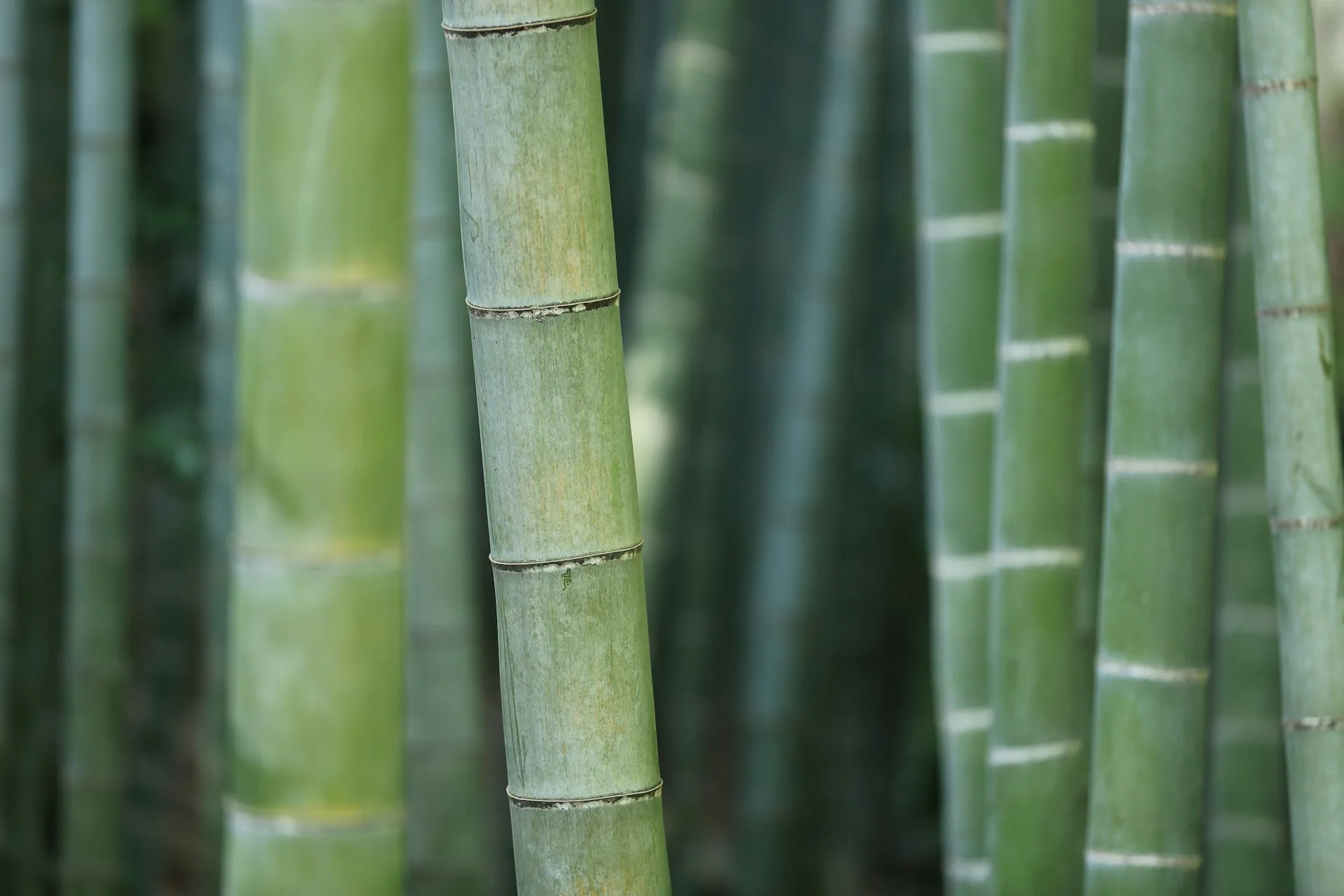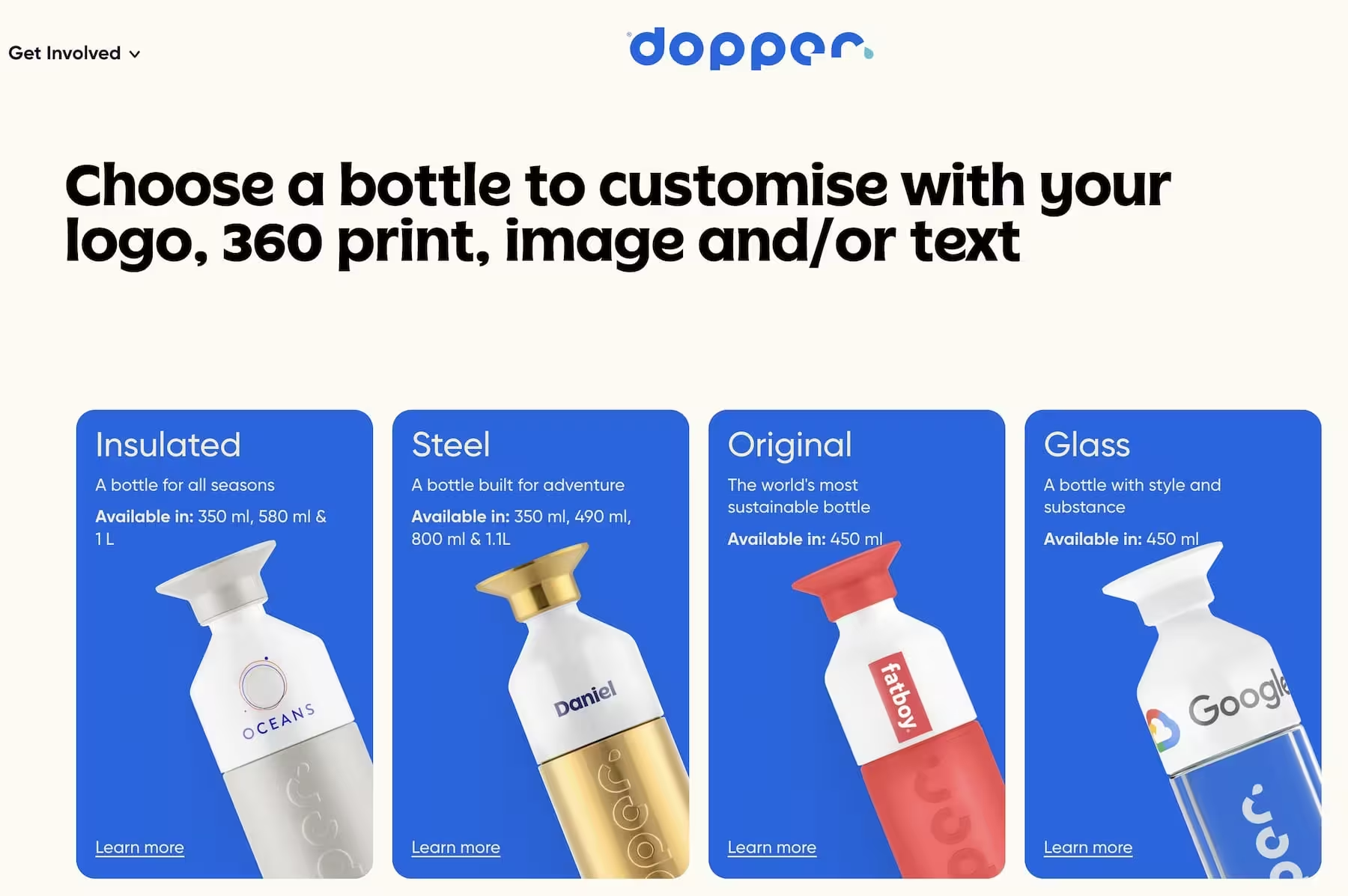We’re way beyond the point where sustainability is a standout strategy – it’s now a concept that virtually every business has to take seriously.
Why? Because folk are increasingly drawn to businesses that represent their ethical values, particularly when it comes to the environment. By overlooking this aspect, your business itself could be overlooked.
Let’s talk about how brands can meet sustainability goals by choosing eco-friendly promotional products.
The growing demand for sustainability in marketing
In the US alone, spend on promotional products exceeds $25 billion every year. Yet, the modern buyer is more selective than ever. A 2024 study by PDI found that 80% of people are prepared to pay more to purchase from a company that’s committed to sustainability. With this shift in mind, brands must reimagine their marketing strategies, which includes their promotional products.
When chosen thoughtfully, promotional products can reinforce a brand’s sustainability mission. Take plastic, where swapping traditional plastic items for reusable or biodegradable alternatives can reduce environmental impact. It’s about that attention to detail.
Not only that, sustainable promotional items from bamboo, recycled materials, organic cotton, or other innovations, send the right signals to eco-conscious people and enhance your brand’s green credentials.
One of the most impactful ways to align your promotional marketing efforts with sustainability is by selecting products made from eco-friendly materials. There’s a rising amount of research on the environmental effects of commonly used promotional items, shaming the detrimental impact of non-renewable resources like plastic. Consider the oft-cited stat from the Ellen MacArthur Foundation that there could be more plastic than fish in the sea by 2050!. Fortunately, many better alternative materials are available.
Examples of eco-friendly materials & how they can be used:
- Bamboo: Known for its rapid growth and minimal need for pesticides, bamboo is a top option for promotional products like pens, cutlery, and business banners.
- Cork: Cork is wonderful stuff. The tree it derives from, the cork oak, is regenerative and doesn’t have to be cut down to harvest the cork. Not only that, it sequesters more carbon once the cork has been stripped! Cork can be used to make a wide range of sustainable promo products, from business cards to water bottles, to eco-friendly floor mats.

- Recycled plastic: Recycled plastic helps reduce waste and supports a circular economy. Reusable bags and drinkware made from recycled plastic can be popular choices for promotional giveaways.
- Bioplastic: Going beyond recycled plastic, bioplastics resemble classic plastic but are made from renewable biomass materials, like cellulose. Can be used just like plastic but you should select one that’s easily biodegradable and compostable because not all bioplastics are – and when not, they can cause the same issues as the ordinary stuff.
- Organic cotton: Ideal for branded t-shirts or tote bags, organic cotton is grown without harmful chemicals, making it a healthier choice for the environment and the people choosing it.
- Innovative alternatives: There are plenty of brands making alternative materials from pioneering materials, like mycelium. Some of these are trademarked and branded, like Piñatex (made from pineapples). You may be able to craft promo materials from one of these emerging ingenuities.

When selecting your promotional items, look for certifications such as Fair Trade, The Global Recycled Standard (GRS), or Forest Stewardship Council (FSC) to make sure that your products meet approved ethical and environmental standards. Let’s say you’re looking to create some promo hoodies. In that case, look for leading organic cotton certifications like GOTS if you’re aiming for exceptional sustainability rather than just a box tick.
Case studies: brands leading the way
It’s still an improving area but some brands have successfully integrated sustainability into their promotional product marketing. Here are two of the pioneers:
Patagonia:
Known for its pioneering commitment to the environment, Patagonia has long prioritized sustainability in all aspects of its business. The company uses recycled materials for many promotional garments. It has also implemented take-back programs to encourage customers to recycle old items. Patagonia’s never-ending pursuit of sustainability is what leads to the fervent loyalty towards the brand.
Dopper:
This trailblazing dutch company has distributed reusable water bottles made from recycled materials at trade shows and events. Dopper reinforces its brand values by offering promotional products that align with its zero-waste mission. The brand also allows other companies to customize their water bottles to create promo merch. And all of the bottles are now Cradle to Cradle certified.

Minimizing waste and improving circularity
Waste reduction is a key consideration in sustainable promotional product marketing. One effective way to minimize waste is by selecting durable, high-quality items that folk can reuse.
For example, why not provide stainless steel or aluminum bottles instead of distributing disposable plastic water bottles at events. Similarly, replacing single-use plastic bags with sturdy, reusable totes can reduce waste and create long-lasting promotional products that people use repeatedly.
Sustainability also involves thoughtful planning regarding the quantity of products ordered. Over-ordering can lead to excess stock, resulting in pollutive waste. By accurately estimating your promotional needs, you can avoid surplus and make sure your marketing efforts remain eco-friendly.
Actionable tips for sustainable promo
Now that we’ve explored the importance of eco-friendly materials and waste reduction, here are some actionable tips for brands looking to connect their sustainability goals with promotional product marketing:
- Choose high-impact, low-waste items: Select items that your customers will use repeatedly, such as reusable shopping bags, water bottles, or bamboo utensils. These items reduce waste and keep your brand at the forefront of buyers’ minds.
- Source from certified suppliers: As the UN Global Compact notes, sourcing from certified sustainable suppliers ensures that your promotional products meet rigorous ethical and environmental standards. To guarantee responsible sourcing, look for certifications like FSC, GOTS, or Fair Trade.
- Check the (wholesale) supply chain: When looking for a partner online, you’ll find that some brands create promo products or merch alongside partners, for example adding embroidery onto another brand’s plain hoodie. In which case you should carefully select those brands that carry reliable certifications within that partnership.
- Consider lifecycle impact: When selecting promotional products, consider their entire lifecycle—from production to disposal. Opt for items that can be recycled or composted at the end of their useful life.
- Use promotional products to promote sustainability: Join your marketing message with your sustainability efforts by creating educational campaigns around your eco-friendly promotional products. For example, include information on the environmental benefits of the materials used in your products or tips on how customers can recycle them.
- Refer to the PPAI guidelines: The PPAI (Promotional Products Association International) supplies best practice guides on the sustainability of promotional products, to help businesses reduce their environmental impact.
By taking proactive steps, you can create a ripple effect that resonates with folk and demonstrates that your brand cares about the planet. Sustainability isn’t just good for the world; it’s a powerful differentiator that boosts growth. That means now is the time to lead purposefully and make your promotional marketing a small step towards positive change. It may be just a small step but those can go a long way, in the end.
This post is a sponsored post created in partnership with VistaPrint. Find out more about their ambitious sustainability initiatives here. And if you’re a brand that’s serious about sustainability and interested in advertising – check out our advertising page.



Leave a Reply